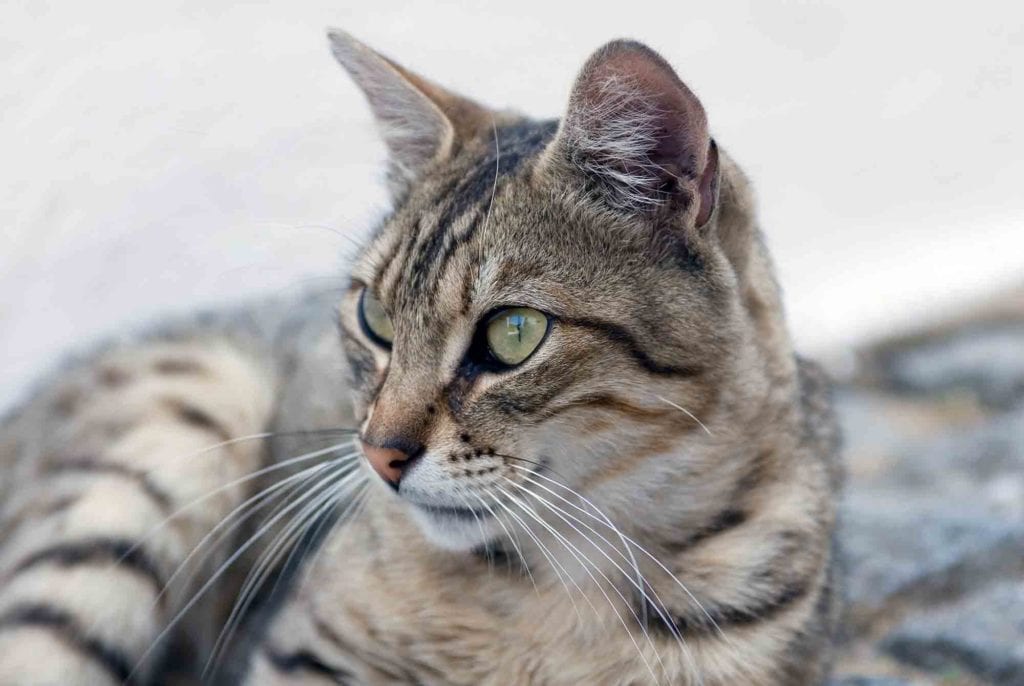Getting Your Cat’s Metabolism in Check: Hyperthyroidism in Cats

Explaining Hyperthyroidism in Cats
Cats, like humans, have a thyroid gland in the cervical region. The thyroid gland is an essential organ that makes up part of the endocrine system. The endocrine system is responsible for the hormone production in the body, and the thyroid, in particular, is the king of the metabolism. This makes keeping the thyroid in balance very important for overall health and function.
Cats are very prone to hyperthyroidism, a condition in which the thyroid gland begins to produce too much thyroid hormone. We don’t fully understand why this happens, and many times it is secondary to a tumor in the gland itself. While a thyroid tumor is typically not a malignant one, it can produce additional hormone.
An out of control thyroid gland causes several symptoms which can include:
- Weight loss
- Increased appetite
- High heart rate
- Hypertension
- Vomiting or diarrhea
- Vision disturbances
Early in its course, hyperthyroidism may go undiagnosed. Left untreated, though, the consequences can become very severe and eventually fatal.
Putting Hyperthyroidism in Its Place
Like so many conditions, when we diagnose hyperthyroidism early in its course, we are better able to avoid serious consequences. We may catch this disease when we place your cat on the scale for her yearly weigh-in and discover a dramatic loss, notice an elevated heart rate during the physical exam, or decide to run some blood tests to check your pet’s internal functions.
If your cat is exhibiting symptoms of hyperthyroidism, we may recommend diagnostic testing, which often includes blood and/or urine tests in order to confirm the diagnosis.
Once we know that your cat is suffering from hyperthyroidism, we are able to begin treating this condition. Thankfully, most cats respond very well to treatment and go on to live normal lives. There are a few options for treating hyperthyroidism in cats:
Medications – Daily medication can be useful to counteract the effects of thyroid hormone. Hyperthyroidism isn’t cured with these medications (meaning the kitty will need to be treated for the rest of her life). Most cats take this medication in the form of an oral pill, although liquid and transdermal formulations are available.
Prescription thyroid diet – A prescription diet, designed to decrease the production of thyroid hormone, is a good way to manage some patients. Cats on this diet must adhere strictly to it for their entire lives.
Radioactive iodine treatment – A more permanent treatment, injection with a dose of a radioactive iodine isotope called I-131, targets the thyroid gland and reduces its hormone production. For upwards of 95% of cats, this treatment is a cure for hyperthyroidism.
Surgery – Surgical removal of the thyroid gland can be an option for some cats, although it is not without complications.
Cats who are affected by hyperthyroidism will need continued care, particularly if they are on medical or diet-based therapies. Kidney function, blood pressure, and ocular health will need to be monitored closely. Most of our patients do quite well, however.
Many cats are affected by hyperthyroidism as they age, and it is important for us to catch it early. Some diseases are detectable before there are obvious symptoms, and thyroid issues are just one more example of why every cat needs to see us for a wellness visit every year. Call us to schedule your purring pal’s appointment today.
Share This Article
About
Schertz Animal Hospital
Since 1976, Schertz Animal Hospital has offered the greater San Antonio area outstanding pet care. Our state-of-the-art animal hospital in Schertz, TX compliments our stress-free handling and experienced veterinary staff. Make an appointment online or give us a call at (210) 659-0345 today!
